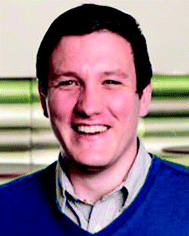Introduction to Synthesis 4.0: towards an internet of chemistry
Richard A.
Bourne
 a,
King Kuok (Mimi)
Hii
a,
King Kuok (Mimi)
Hii
 b and
Brandon J.
Reizman
b and
Brandon J.
Reizman
 c
c
aInstitute of Process Research and Development (UPRD), School of Chemistry and School of Chemical and Process Engineering, University of Leeds, LS2 9JT, UK.
bMolecular Sciences Research Hub, White City Campus, Imperial College London, London, UK.
cEli Lilly and Comapny, Lilly Technology Center-North, Indianapolis, Indiana 46285, U.S.A.
Across the industrial landscape, interconnected technology is igniting a fourth industrial revolution (Industry 4.0), one that unifies machines, devices, automation, and artificial intelligence to deliver smart manufacturing solutions to global challenges. Just as the Internet of Things has transformed manufacturing, an Internet of Chemistry is emerging that will shape how cyber-technologies are used in chemical research. Highlighted in this themed issue, the arrival of the “Synthesis 4.0” trend is enabling experimentation to be performed more efficiently and rapidly, generating richer sets of data that invite a multidisciplinary approach to synthesis and process optimization.
In the UK, the Dial-a-Molecule Grand Challenge Network (http://generic.wordpress.soton.ac.uk/dial-a-molecule/) was formed in 2010 to provide a forum for transforming the way in which synthetic chemistry is carried out, moving away from slow, labour-intensive manual methods, to highly automated, data-driven approaches. For these ideals to be realised, synthetic chemistry research needs to continue evolving by embracing advances in data science and automation, such as to accelerate the discovery process that is necessary to address increasing global demand for better agrochemicals, smart materials, and medicines.
Indeed, the way synthesis is practised has changed substantially over the past decade: the use of high-throughput automated equipment is now routinely used to execute a large number of reactions in parallel, for screening multiple reaction parameters rapidly, such as reactant-catalyst-solvent combinations (e.g. DOI: 10.1039/C9RE00054B, 10.1039/C9RE00067D, 10.1039/C9RE00118B), where multivariate analysis (MVA), statistical, or mechanistic methods can be applied to large datasets to extract reaction understanding (DOI: 10.1039/C9RE00072K, 10.1039/C9RE00180H, 10.1039/C9RE00086K). The use of smart devices and technologies (e.g. data visualisation, networked systems, online analytics, robotics, and internet connected devices) is becoming increasingly prevalent in chemical laboratories (DOI: 10.1039/C9RE00017H, 10.1039/C9RE00057G, 10.1039/C9RE00144A, 10.1039/C9RE00043G). Greater accessibility of these devices to the scientific community has led to the emergence of all-in-one reaction characterization and optimization platforms. These platforms merge automated equipment with online analytical tools and algorithms, again in an effort to deliver richer process data and better understanding (DOI: 10.1039/C9RE00116F, 10.1039/C9RE00072K, 10.1039/C9RE00078J, 10.1039/C8RE00345A, 10.1039/C9RE00087A, 10.1039/C9RE00096H). In the digital space, algorithms continue to be refined for application of rule-based and machine learning methods to the prediction of synthetic routes (10.1039/C9RE00076C, 10.1039/C9RE00019D).
By assembling this themed issue, the editors would like to highlight the unique opportunities and challenges of adopting a data-driven approach to synthesis. Working with multidisciplinary contributors across disciplines and from academia and industrial laboratories, we are pleased to present a collection of articles across the theme of “Synthesis 4.0” to highlight state-of-the-art research as well as future challenges. Last but not least, we would like to thank all the contributors for their submissions to this themed issue, which we hope will help to encourage the future expansion of this impactful research area.
| This journal is © The Royal Society of Chemistry 2019 |



